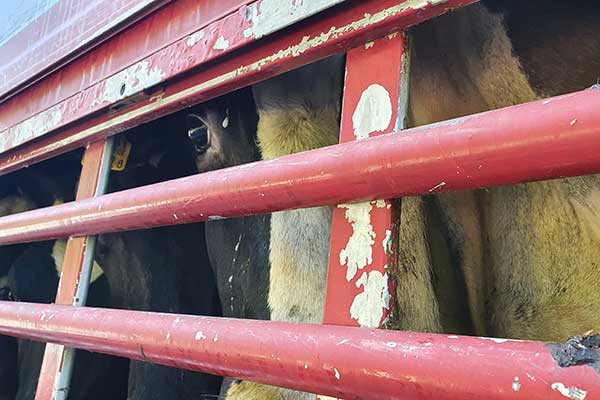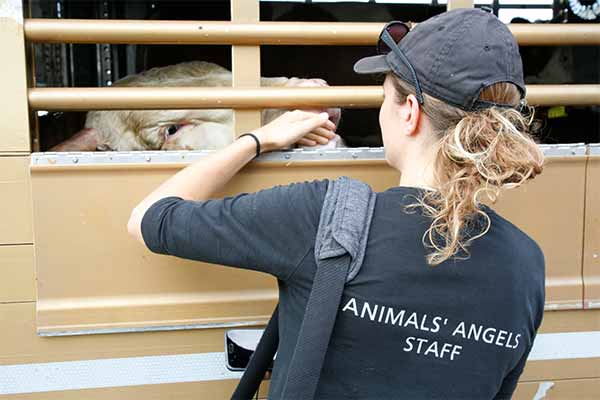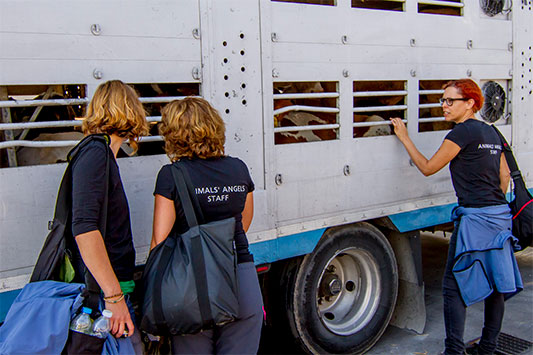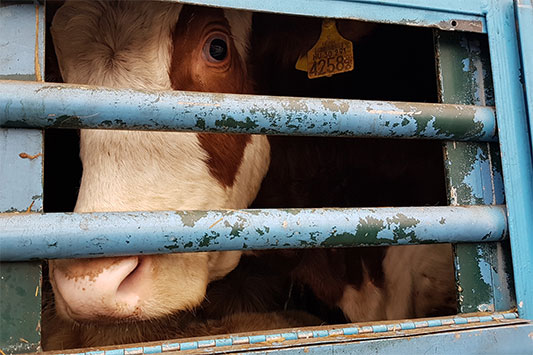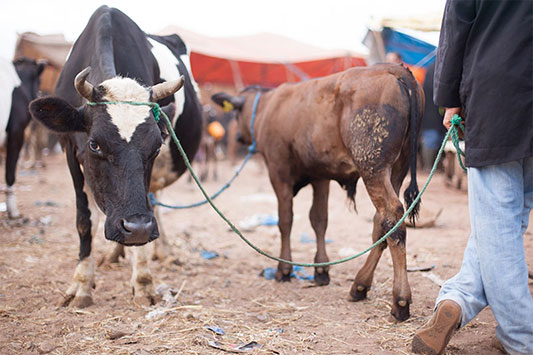Animals' Angels accompanies so-called 'sorted out' cows on their last journey to the slaughterhouse. The animals come from Estonia and are transported over 14 hours via Latvia and Lithuania to a Polish slaughterhouse. Sorted out because no longer profitable enough for milk production.
Once again we are shocked at how little the operators care about the conditions under which their animals are transported. We count more than seven cows whose udders are bulging and losing milk. Tuuli, a Holstein Frisian cow, has an udder injury where it appears a milk duct has been hit and milk is now flowing out in a stream. She would need veterinary care and urgent milking. But instead, here she is, crowded together with the other 30 cows on an animal transport.
According to EU regulations, lactating cows must be milked every 12 hours - but there is nothing about this in the planning of this transport. The drivers also just shrug their shoulders. So far, no one has complained about this. They cannot imagine how painful these full udders must be for the cows.
The animals are not even given bedding on their final journey. They stand the entire distance on the hard metal floor, which turns into a slippery mixture of urine, excrement and milk residue the longer they are transported. Here, too, the transport violates current EU law. This is because all transports over 8 hours must be equipped with appropriate bedding to ensure a certain level of comfort for the animals and absorption of excrement. This would be especially important for these 'discarded' and weakened animals, which are often taken out of milk production because they are sick, no longer get pregnant and/or give too little milk.
In Lithuania, we arrange for an official inspection, which once again starkly illustrates how poorly practiced the authorities are in enforcing the existing EU transport regulation. The police stops the truck, but does not carry out any control and finally leaves us standing with the truck - the drivers are supposed to wait for the official veterinarian. Only by detours and several attempts we can reach the official veterinarian. It takes one and a half hours until he is on site. The drivers do not wait that long and drive on shortly before his arrival.
The police stop the truck again. The veterinarian finds several violations, which he forwards to the competent authorities in Estonia and Poland. However, a comprehensive transport control looks different! Neither does he inspect the animals in the second deck (because of missing ladder), nor does he have effective sanction possibilities at hand. Also, there is apparently no possibility on the spot to unload animals unfit for transport and to provide them with adequate veterinary care. The necessary infrastructure is simply lacking.
The cows are finally transported further, about 400 km to Poland to a slaughterhouse. Tuuli's case shows once again: empathy and respect do not exist in a system in which sentient creatures are degraded as birthing and milking machines and - as soon as they no longer provide the necessary performance - are sorted out, as cheaply as possible, in order to get at least a little profit out of them.
We will comprehensively investigate Tuuli's story and that of the other cows and confront the responsible authorities with the abuses.






